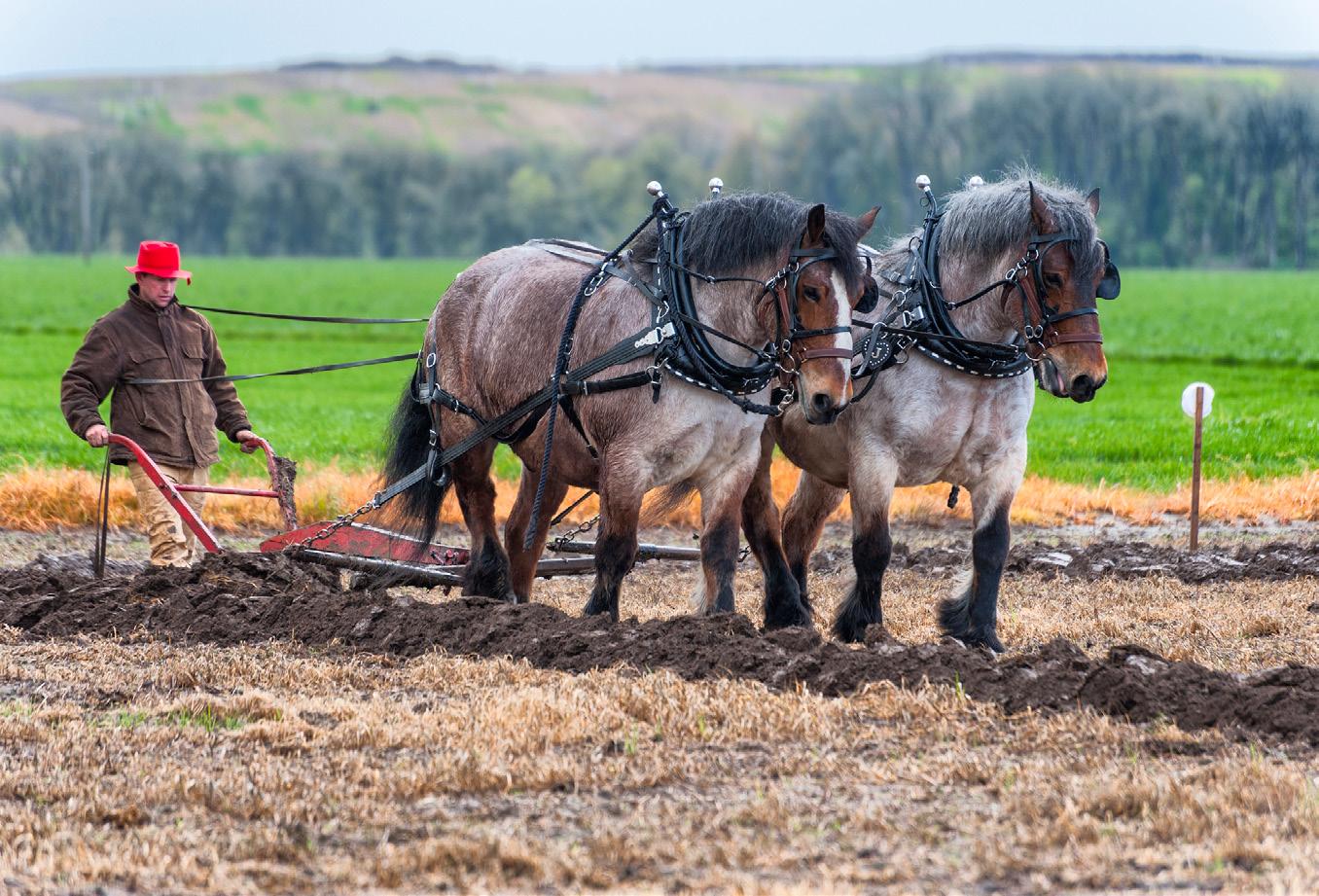Column • A Path to Peace
Put Your Hand to the Plow
W
by Kevin Wiebe
ISTOCK
hen I began studying conflict, I was surprised about how many of the classes were about simply dealing with our own baggage. It turns out that since much of conflict pertains to misunderstandings and the attitudes we embody, much of the work to deescalate matters involves the simple but difficult work of humbling ourselves and dealing with those things that only we can. Ecclesiastes 11:4 (NLT) says, “Farmers who wait for perfect weather never plant. If they watch every cloud, they never harvest.” If we sit and wait for everyone else to do their part perfectly before we own up to our mistakes and take responsibility for our own actions, we will never do it. Like a farmer waiting for a cloudless sunny sky before getting to work, we too may be waiting forever. Like the weather, there are many things outside of our control. We cannot control the attitudes and actions of others. We cannot force relationships when other parties do not want them. We cannot change the past, and we are unable to ensure that others will forgive us for our misdeeds. There is certainly much that lies outside of our control. When I have been in conflict it can feel like a mental and emotional free-fall, as if things are happening faster than I can comprehend as events go by in a blur and I am simply struggling to take my next breath. Yet it is important to remember—especially in those moments—that there are things within your control. You can control your own actions. Perhaps not the reactions of your body such as your blood pressure rising,
your heart racing, and your hands shaking, but you can choose your words and actions carefully. In Matthew 7, Jesus tells his disciples not to focus on the speck in someone else’s eye when they have a log in their own. A while ago I took my kids for wings, and my daughter looked at her brother and laughed at him for having sauce all over his cheeks. When I looked over at her, I began to laugh too, because her cheeks had just as much sauce on them as her brother’s did. Just like sauce on our cheeks, faults and mistakes are much easier to see in others. It is easy to be critical of others and point out the faults of others. This kind of behaviour can even masquerade as wisdom, but it simply isn’t. Perhaps it comes from a place of knowledge, but when it is disconnected from the way one lives, it can become toxic and hypocritical. What Jesus invites us to do is to humble ourselves, to put our hand to the plow, and to do our own work. What others do—well, that isn’t up to you to control. Keep your eyes on Jesus, put your hand to plow, and do the work God is asking you to do, even if there are a few dark clouds on the horizon.
What Jesus invites us to do is to humble ourselves, to put our hand to the plow, and to do our own work.
www.emcmessenger.ca • The Messenger 5










